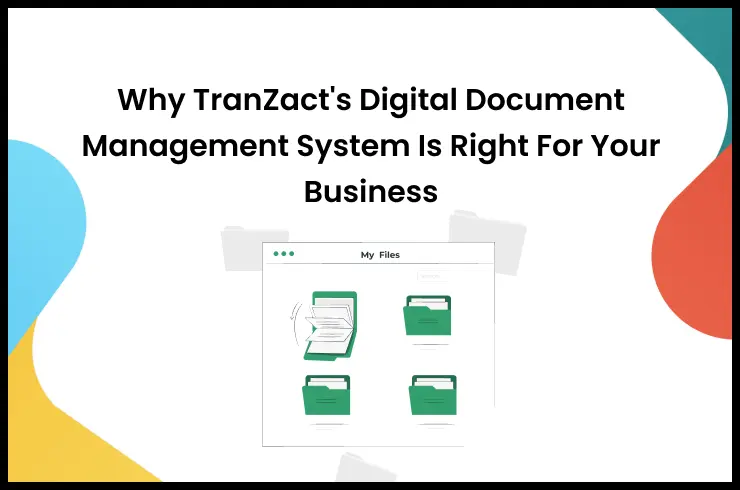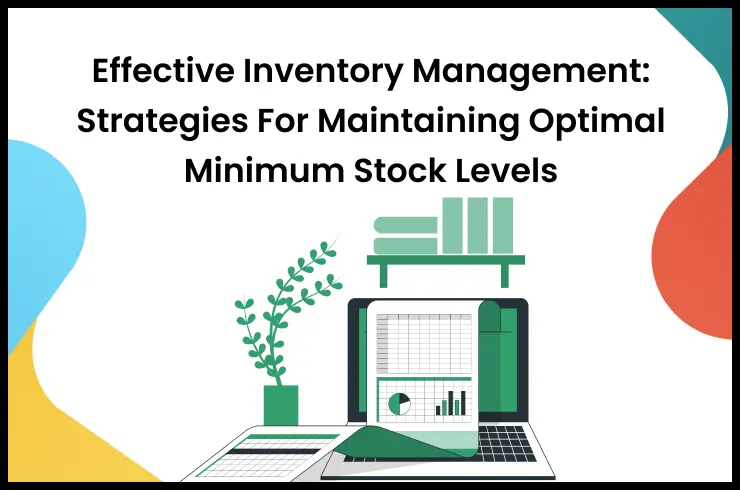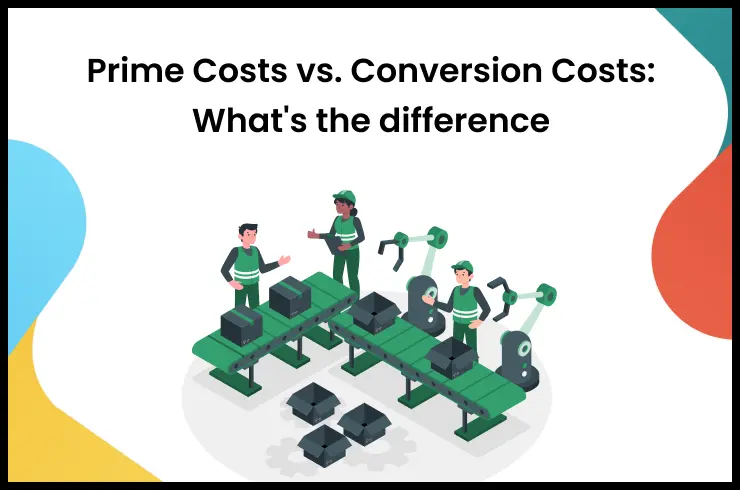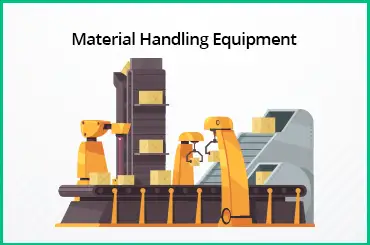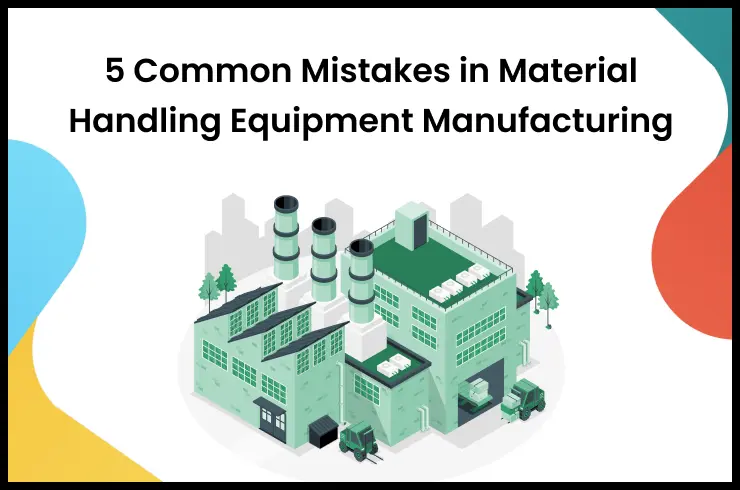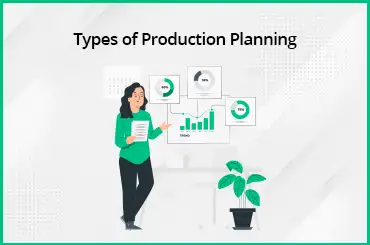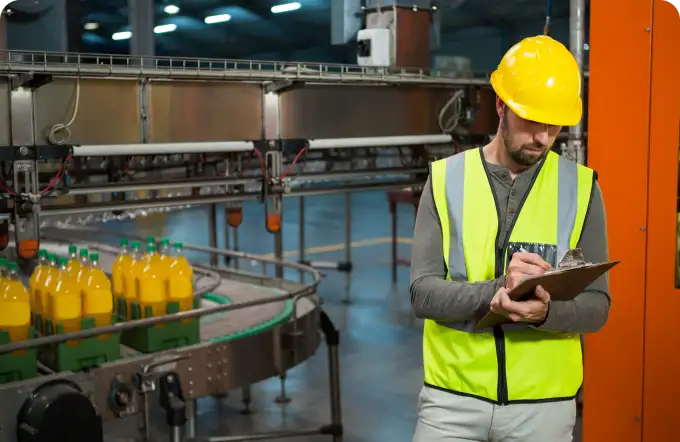In many Indian SME manufacturing businesses, the lack of a proper Production Management System can lead to significant challenges. Without an efficient system in place, manufacturers often struggle with production delays, resource wastage, inconsistent product quality, and difficulties in meeting customer demands. These issues not only reduce productivity but also increase operational costs and impact customer satisfaction.
This blog post will explain what a Production Management System is, why it's important, and the benefits it brings. We'll also understand how implementing such a system can help Indian SME manufacturers overcome these challenges,and improve overall efficiency.
What Is Production Management?
Production management is taking care of the production processes and production cycles of a manufacturing business. It makes sure that they are running efficiently and without interruptions. With this, manufacturers are able to produce finished goods that meet customers' quality expectations. Manufacturing process management helps SMEs make use of enough materials, manpower, and resources at the required time to produce goods, for customer satisfaction.
The production management software allows businesses to make a balance between the right quantity, quality, and costs. It also considers the time of procurement and production. By the production management definition, it is a collection of technologies and methods that define the manufacturing of the products.
What Is a Production Management System?
A production management system is a software used to optimise the production with automated and data-driven manufacturing processes. This system is used to track production data, such as Bill of Material, production scheduling, production forecasting, strategy, and production costs.
The production system in operations management is also responsible for monitoring and controlling production planning and other activities. The system can also identify potential manufacturing issues and correct them on time. Additionally, the system also makes sure that the correct number of materials are available for the production process. It does so by integrating with inventory and Material Requirements Planning (MRP) modules.
Read Also - Production Planning and Control Explained
Function of production management
Production management is an important part of any manufacturing business. It has many functions that support the production process at every level. Let’s learn the function of production management in detail.
1. Planning: This part is about forecasting demand, finding out the quantity of goods to be produced, and setting production schedules.
2. Organising: In this part, the system helps in arranging resources and tasks to achieve production goals.
3. Directing: The production management system guides, instructs, and oversees the production process.
4. Controlling: This includes monitoring the production process, making sure that it is on schedule, and taking action if necessary.
5. Coordination: This part makes sure that all parts of the production process work together efficiently.
Read Also - What Is Material Requirements Planning (MRP)?
Example of production management
Let us understand production management with an example. Take the example of an automobile manufacturing company. The manufacturing work starts with the production manager planning the production of different models based on market demand forecasts. They organise resources such as raw materials and labour. Then, they coordinate different teams, such as design, assembly, and quality control.
To make sure that there is efficient production, they also monitor the production process to detect any issues or delays and take corrective action. If a company’s production management is smooth, the company can produce the right quantity of vehicles, maintain high quality, and deliver them on time to dealerships. This not only meets customer expectations but also helps the company stay competitive in the market.
Importance of Production Management
The process of production management is a key factor in the manufacturing, testing, and distribution of goods. Here are the factors that highlight the importance of production management:
- Production management plays an important role in a manufacturing business’s resources. It makes sure that they are used optimally.
- It makes sure that production managers have all the information and resources required to plan, organise, and control production cycles on a day-to-day basis for seamless delivery.
- It also provides the production team with the abilities required to adapt to changes in the marketplace.
- Production management allows manufacturing businesses to stay ahead of the competition by building flexibility and agility.
- Production management techniques help businesses achieve their growth objectives.
Read 5 Ways Production Planning Software Can Boost Manufacturing Efficiency.
Types of Production Management
There are several types of production management techniques. They can all help businesses implement the best production cycles. Here are the different types of production management techniques:
1. Job shop production: Indian SME's manufacturing environment has low volume and wide variety. In a job shop production system, each product is produced one at a time, and the job shop must be flexible enough to have the unique production requirements of each product.
2. Batch Production: Batch production is the process of manufacturing products in small, discrete batches. This type of production is often used in the food and beverage industry. There, products are made in large quantities and then packaged and sold in smaller batches.
3. Mass Production: The assembly line is the most common form of mass production. It is a process in which a product is assembled by moving it from one workstation to another. This type of production is often used when products need to be mass-produced to meet customer demand.
4. Continuous Production: Continuous production is a technique in the management production system wherein products are produced without interruption. The main advantage of continuous production is that it is very efficient. It gets rid of the need to set up and break down production equipment for each batch of products.
Key Features of Production Management System
There are various features of the production management system that take control of your production management process in different ways. Its most important features of production management are as follows:
- Planning and Scheduling: The system generates production plans and schedules based on customer orders and available resources.
- Inventory Control: A production system in production management connects with the inventory functions too. It tracks and manages inventory movements. This makes sure that the team has all the required materials to produce finished goods.
- Quality Control: It provides quality monitoring and control throughout production. This helps maintain the business reputation and customer satisfaction.
- Cost Control: One of the most important features of a management production system is to optimise production operations in a way that costs are in control and profitability is maximised.
- Reporting and Analytics: The production information system provides accurate reporting and analytics tools to help managers make informed production decisions.
- Scheduling and Planning: The production and operations management system helps managers plan and efficiently schedule production.
Read Also - What Is Sales and Inventory Management System?
Benefits of Production Management System
A production management system provides the tools and resources to track production progress and data consistently. This allows the company to identify bottlenecks and areas for improvement with ease. Here are some of the most important benefits of production management system:
- A production management system automates routine tasks, analysis and workflow.
- It improves cross-functional collaboration.
- It provides real-time production analytics for better decision-making.
- It enhances delivery quality and cost management.
- It gets rid of unnecessary tasks and lets you focus more on strategizing for growth.
- It helps you focus on achieving key performance growth indicators.
- A production management system also improves internal integration and manages complex production priorities.
Read Also - Warehouse Receiving: Process and Procedure for Optimization
Automate Your Production Management With TranZact
Indian SME manufacturers can transform their production processes by using a production management system. It helps them plan, execute, and track their everyday production operations. Additionally, a production management system can help to track and monitor production progress and quality.
TranZact is made specifically for SME manufacturers. It comes with several functions that help you with your production tasks. They also have a team of professionals who help you implement the software and provide continuous customer support.
Learn How TranZact Can Streamline Your Manufacturing Planning Process.
In addition to a production management system, TranZact also offers a complete suite of cloud-based tools and services for SMEs. These solutions help SMEs to manage their quotations, inventory, MRP, accounting, and other functions. The platform is accessible from anywhere, at any time to accelerate manufacturing operations for Indian SMEs!
FAQs on Production Management system
1. What are the types of production management systems?
Production management systems can be divided into various types based on their specific functionalities and applications. These systems include a range of approaches. They include lean manufacturing, just-in-time production, and computer-integrated manufacturing, etc.
2. What is a production information management system?
A production information management system is a framework that includes end-to-end data for planning, collaboration, and tracking of all activities involved in the manufacturing process. It optimises resource utilisation, and quality standards, and streamlines operations.
3. What is a production system in production management?
A production system is an important part of the concept of production management. It refers to the overall arrangement of resources, processes, and technology used to transform inputs into desired outputs. It includes physical infrastructure, workflows, and strategies that control the manufacturing process.
4. What are the 4 types of production systems?
The four types of production in manufacturing are:
- Intermittent production
- Continuous production
- Mass production
- Batch production
5. What is an example of production management system?
An example of production management system is Enterprise Resource Planning (ERP) software. An ERP integrates various functions such as production planning, inventory management, and scheduling into a centralised system. Another example is Manufacturing Execution Systems (MES). It provides real-time monitoring and control of production processes on the shop floor.
6. What are the 5 types of production management?
The five types of production management commonly are:
- Project management
- Process management
- Inventory management
- Quality management
- Maintenance management
7. What is operations management?
Operations management is a process used to describe all the internal activities required to fulfil a production cycle as per customer demands. This includes product development, logistics, and customer service.
8. What is the difference between production and operations management systems?
While the terms production management and operations management are sometimes used synonymously, the difference between both is their scope. Production management is the process of tracking all product manufacturing processes. Operations management is the process of tracking operations to make sure the product can be manufactured on a timely basis.
9. What is a production system in operations management?
A production system in operations management refers to the organised set of activities, processes, and resources involved in transforming inputs into finished goods or services. It includes planning, scheduling, inventory management, quality control, and other operations-related functions.
10. What is the definition of production management system?
Production management definition states that it is a system that oversees, directs, and controls the process of producing goods or services. It is a set of methods used to manage and control the production.








